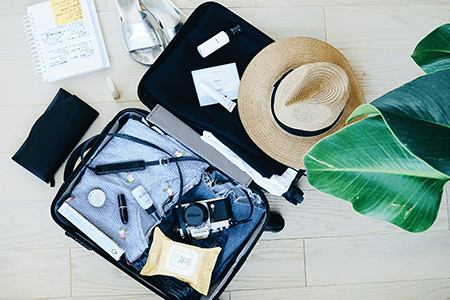How to use love languages and gratitude to create deeper connections
By MAS Team | 30 July 2023
When it comes to what’s truly important in life, building meaningful connections with the people around us is high on the list. Whether it’s having a laugh with mates, spending quality time with family, or getting romantic with your special someone, our drive to develop bonds with others is part of what makes us human.
Taha whānau (family and social wellbeing) encompasses all relationships we have around us, from our inner circle of family and close friends to broader groups like hoamahi (workmates) and people in our community. All these social interactions help to boost our health, happiness and wellbeing.
But communicating and connecting with other people isn’t always straightforward. The way we feel about ourselves has a direct impact on how we interact with others, and as we’re all unique individuals, the way we express emotions, give and receive love, and interpret social cues can vary widely.
This is where things like practising gratitude and learning love languages can help – not only for building deeper bonds with the people around us, but for learning valuable lessons about ourselves, too.

Despite the name, love languages aren’t just about how we relate to romantic partners. They are also about figuring out what makes someone feel valued and appreciated, and identifying these preferences in others can help us better understand friends, family and workmates. And of course, love languages go in two directions; how you show appreciation for others and how you like to be appreciated in return.
In our recent student survey, we asked our audience about their favourite people in their lives, and what made the connection so special. Theirs answers included everyone from parents, siblings, besties and mentors, with attributes like strength of character, generosity, and ability to inspire others, among the things they most admired about them. When we asked them where they fit within the 5 different love language categories, quality time came out top of the list, followed by words of affirmation and physical touch.
Many people identify strongly with more than one category, and your preference can change over time. Check out more on the 5 love languages below:

When we feel good about ourselves, our relationships with others are better too. From practising simple ways to boost positivity, to making gratitude and appreciation a daily habit, each small step creates a ripple effect on our outlook and interactions in the world.
Being more patient and compassionate towards ourselves is the foundation for a more positive mindset. This can take practice, but start by acknowledging your accomplishments, no matter how small, and celebrating your achievements. Whenever the inner critic creeps in, shut it down by asking yourself, ‘would I say this to a friend?’. Take care of your physical and mental health by making time for exercise and hobbies that bring you joy. Learning how to set healthy boundaries with people, and how to say ‘no’ sometimes when you already have enough on your plate, are also important for mental wellbeing.
Whether it’s jotting down things you are thankful for in a gratitude diary or making more of an effort to express your thanks to others, gratitude is a well-known mood booster. While it may sound like the stuff of cheesy self-help books, studies have found that practising gratitude regularly leads to increased optimism, less irritability, and enhanced overall wellbeing. Research also suggests that over time, focusing on the positive aspects of our lives may even help to train our minds to shift away from negative thought patterns.
From paying for a stranger’s coffee to leaving a heartfelt note for a loved one, random acts of kindness always up the feel-good factor for the giver and receiver. According to the Random Acts of Kindness Foundation, going out of your way to brighten someone’s day can also increase levels of the happy hormones serotonin and oxytocin, boost energy, and create a profound positive ripple effect by encouraging others to pay it forward, too.
In today’s digital world, it’s easy to neglect the importance of real-life connections. Show your appreciation for others by being fully present when you spend time together. Put away your phone, maintain eye contact when talking, ask questions about the other person and engage in meaningful conversations. Being in the moment without distractions is an effective way to show someone you value them. This also extends to other aspects like showing up on time when you’ve arranged to meet someone, doing what you said you would do, and being a reliable friend.
We all know that a quick walk outside, or as one Kiwi researcher found, spending time in gardens, works wonders for reducing stress levels. But you can harness even more of nature’s power by combining outdoor exercise with meditation. It’s not about being a new-age guru, all you have to do is intentionally focus the senses. Study the pattern on a leaf, actively listen to the sounds around you, and tune in to the feeling of the breeze on your face. Engaging the senses helps to ease anxiety and calm racing thoughts.
Appreciation and positivity aren’t just for when life is going well; it’s also about recognising the growth and lessons that come from challenges. Part of this is practising forgiveness of yourself and others, as holding onto grudges can hinder personal growth and damage relationships. By letting go of any negativity that’s weighing you down, you allow more space for positivity to flourish.


4 April 2024
Burnout is a word that’s bounced around a lot these days, but how is it different from general anxiety and how can you avoid it if you think you’re at risk?

15 June 2021
As the temperature drops, you need to get your home reading for any wild weather that winter may throw at it. Get your house prepared for the coldest months with our checklist of must-dos.

14 December 2021
Most of us wouldn’t head for a trip overseas without travel insurance, but what about domestic travel? If you have contents insurance with MAS, your stuff is most likely automatically covered under your policy if you’re on a domestic trip.